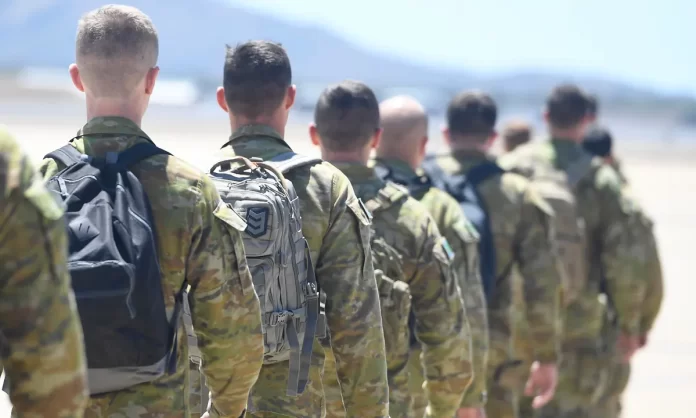The Australian Defence Force(ADF) should consider establishing a Pacific battalion with rotating Australian and Pacific troops to help boost regional ties and address the military’s staffing crisis, a new report has argued.
The government is also being urged to consider allowing the direct recruitment of Pacific Islanders into the ADF, overturning the long-standing principle that Australian citizenship is required to enlist in the military.
Amid growing calls for Defence Force eligibility rules to be loosened to meet ambitious recruitment goals, the federal government has flagged that it wants to expand options for foreigners to serve in the ADF.
Several Pacific countries – including Nauru, Tuvalu, Kiribati and Solomon Islands – do not have formal militaries, reducing concerns about Australia poaching staff from other nations’ defence forces.
“There is, however, an argument that the expectation that foreign nationals will fight for Australia goes against the concept of duty and allegiance to one’s own country,” the report’s authors caution.
“The recruitment of Pacific Islanders to fight for Australia can be viewed as ‘colonialist’ in a region sensitive to and with a history of such practices.”
A better option may be the creation of a Pacific battalion that could be stationed and deployed across the region, with a focus on maritime security, national resilience and humanitarian and disaster response.
Defence Personnel Minister Matt Keogh said in January that “we are certainly looking at all options that we need to look at in terms of how we can grow our Defence Force and that includes looking at how we might be able to grow it from friendly forces”.
Keogh said the government was “looking at the Pacific, but we’re also looking more broadly than that because we recognise the importance of growing our Defence Force“.
While noting potential problems, the report by the Australian Strategic Policy Institute says the government should examine three options to boost defence ties with the Pacific:
*direct recruitment of Pacific Islanders into the ADF;
*integrating regional co-operation through the creation of a new Pacific battalion; and
*developing a regional compact that could grant Australia control over Pacific nations’ defence policies and rights to build military bases.
“One thing is certain: Australia needs to develop more creative and bold recruitment and retention strategies,” authors Bec Shrimpton and Zach Lambert argue in the paper, Regional Security and Pacific Partnerships: Recruiting Pacific Islanders into the Australian Defence Force.
The ADF has set a goal to expand staff numbers by 30 percent by 2040, but the latest budget figures show personnel fell by 1200 in 2023.
The report finds that allowing Pacific Islanders to enlist directly with the ADF would boost Australia’s military strength and enable the flow of substantial payments to Pacific nations.
Britain’s armed forces have long recruited soldiers from other countries, including Nepal and Fiji, as well as from nations in Africa and the Caribbean.
The battalion could be raised as a combined force with a rotating mix of Australian and Pacific Island officers, including soldiers from other like-minded countries, or police and paramilitary forces from those countries without militaries.
“That may prove a tremendously useful way for Australia and the region to co-ordinate and co-operate on regional security,” the authors state.
“Based on our research, and our conversations with PIC [Pacific Island country] security officials, this option possibly offers the greatest benefit across the broadest set of criteria and is the preferred option among those officials.”
Such a battalion would free up ADF personnel by reducing the requirement for Australian troops to respond to problems in the region.
The third option would see Australia and Pacific nations seek to establish a version of the United States’ Compact of Free Association, which it has signed with Palau, the Marshall Islands and the Federated States of Micronesia. These agreements grant the US control over these countries’ defence policies and rights to military bases in exchange for financial assistance and permission for their citizens to live and work in the U.S.













